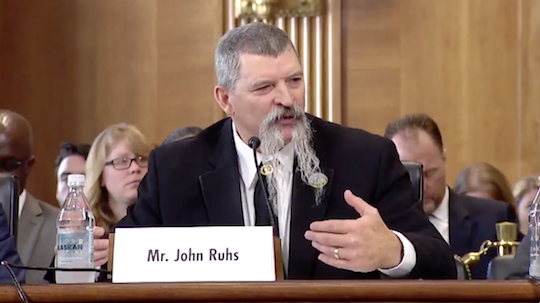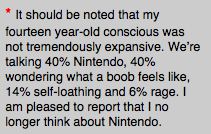
BLM Acting Deputy Director John Ruhs testifies on fact-checking in Interior and, presumably, the mines of Moria
On Twitter this morning, Sen. Mark Heinrich (D-NM) alleged that there were “basic factual errors” in the recommendation on national monuments that Secretary of the Interior Ryan Zinke submitted to President Trump last month, including the claim that monument designation had reduced hunting access in New Mexico. According to local BLM staff, hunting access has improved under monument designation. Noting that these facts appear to contradict Zinke’s report, Heinrich asks John Ruhs, the Acting Deputy Director of the Bureau of Land Managment, whether the secretary’s office consulted local BLM officials before drafting its report. In this video, Ruhs said the secretary’s office did not consult local BLM officials. Neither did it ask the BLM to fact-check Zinke’s memo.
That memo was previously kept secret, but it leaked this weekend. In it, Zinke recommends shrinking 10 national monuments designated under the Antiquities Act by previous presidents, mostly Barack Obama. He also makes several assertions that Outside magazine describes as “lies.” To be fair, some of what Outside criticizes are not claims of fact. But taken altogether, Zinke’s memo suggests that he formed his plan to reduce national monuments first and went looking for evidence second.
Back in May, Energy & Environment News reported that Interior had suspended meetings with Resource Advisory Councils, the local groups that have advised on federal land management decisions since 1996. Zinke did, however, consult a different group of stakeholders: oil companies. According to personal schedules obtained by the Washington Post under the Freedom of Information Act, during the first two months after he was confirmed, Secretary Zinke held “more than a half-dozen meetings with executives from nearly two dozen oil and gas firms…including BP America, Chevron and ExxonMobil.” He also met with Bakken oil magnate and 39th-richest American John Hamm, who is head of the American Petroleum Institute.
Such meetings account for one of the most technically true claims in Zinke’s report to president Trump, that public comments on the issue of shrinking national momuments “can be divided into two principal groups.” That is correct only in the sense that 99.2% of public comments received by the Department of the Interior wanted the monuments to stay at their current size. The other 0.8% felt differently. But this dividing of the more-than-99-percent and the less-than-one-percent into “two principal groups” was not a deliberate attempt to mislead the president. Zinke must have believed that 0.8% was significant, because he sided with them.
Taken together, these behaviors suggest that the secretary had a conclusion in mind when he set out to gather information about national monuments. That conclusion coincided with the wishes of resource extraction companies and contradicted the preference of the general public. Despite Zinke’s statements about consulting “stakeholders,” he took active steps to stop hearing from local groups invested in land management decisions. He didn’t even bother to ask BLM if what he was telling the president was true. These behaviors suggest one of two scenarios:
- Interior Secretary Zinke is bad at his job, or
- Interior Secretary Zinke knew what the president would want to hear and told him that.
So is he a yes-man or an incompetent? Neither possibility comports with the image Commander Zinke has projected throughout his political career. Neither do the recommendations in his memo square with his professed commitment to preserving public lands. I’m sure there’s a reasonable explanation for why Zinke proceeded according to the principle of Just Sayin’ Stuff in order to produce a factually inaccurate memo to the president, and why his actions during the first six months of his tenure as an appointed official in the executive branch have diverged so sharply from the values he professed as an elected legislator from Montana. I would like to hear them. I suspect we all would.




